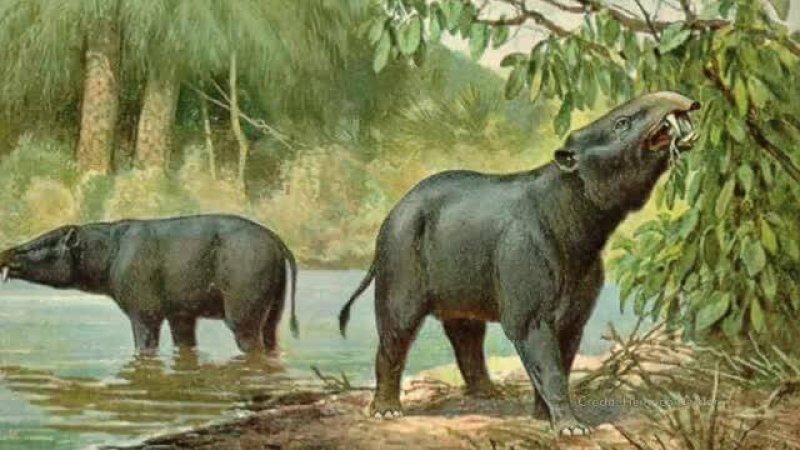New research has disputed a longstanding view that early humans helped wipe out many of the large mammals that once roamed Africa.
Today, Africa broadly has five species of massive, plant-eating mammal; but millions of years ago there were many more types of giant herbivore. Why so many types vanished is not known, but many experts have blamed our tool-using, meat-eating ancestors.
Now, researchers say the mammal decline began long before humans appeared.
Writing in the journal Science, Tyler Faith, from the Natural History Museum of Utah, and colleagues argue that long-term environmental change drove the extinctions.
…
The results of the analysis showed that over the last seven million years, some 28 lineages of large mammal went extinct in Africa.
Furthermore, the onset of the herbivore decline began roughly 4.6 million years ago, and the rate of decline did not change following the appearance of Homo erectus, one of the earliest human ancestors that could have contributed to the extinctions.
“This extinction process kicks in over a million years before the very earliest evidence for human ancestors making tools or butchering animal carcasses and well before the appearance of any hominin species realistically capable of hunting them, like Homo erectus,” said Dr Faith.
Read full, original post: Humans ‘off the hook’ for African mammal extinction































